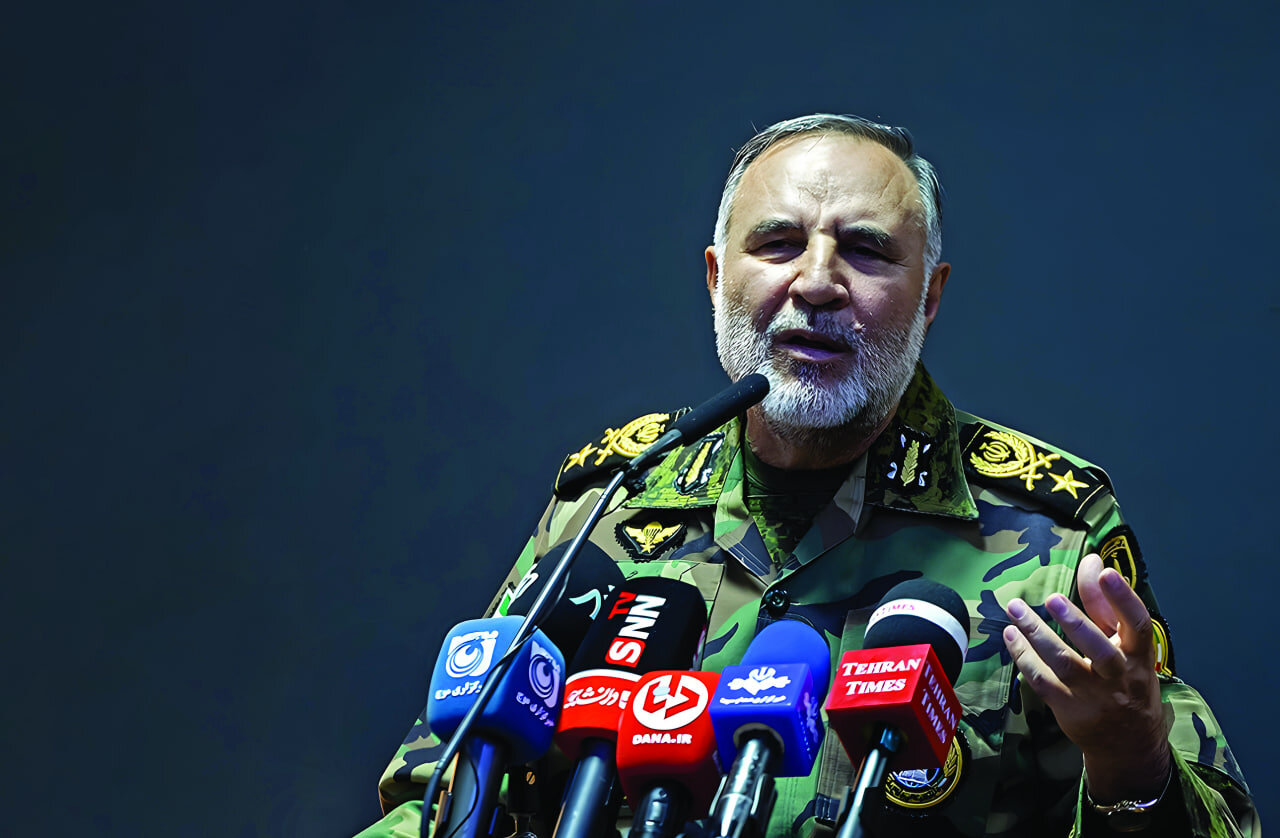Prepared for battle
Army commander tells Tehran Times that any source of aggression will be ‘razed to the ground’

TEHRAN – The Army (Artesh) Ground Force held a ceremony on Sunday to mark the conference on the founding and achievements of its Evaluation and Growth Centre for Human Capital.
During the event, officials delivered speeches highlighting how the centre established in 2019, has been helping the Ground Force to adapt to modern warfare's demands, where cognitive skills and adaptability are becoming as crucial as physical prowess and the collections of weapons.
Among the speakers was a prominent Iranian psychologist, a full-time professor at the prestigious University of Tehran, who discussed the creativity classes she has been teaching to Army commanders. She also shared her surprise when first approached by the military for this role. "This collaboration signals a cultural shift," she noted.
The ceremony also included insights from other leading Iranian professors and military analysts, who spoke about the critical thinking and specialized training programs they have conducted for Army personnel.
After the event, the Tehran Times had the opportunity to speak with Brigadier General Kiomars Heidari, Commander of the Army Ground Force, about more pressing national issues. The general discussed the weapons status, operational readiness, and mindset of his forces.
Below is the full text of the interview:
What are the latest military and technological advancements in the Army Ground Forces?
We have made significant progress in the field of micro-drones, with ongoing efforts in production, procurement, deployment, and organization. Our achievements in this area have been highly successful.
The Army Ground Forces consist of 23 weapon groups that complete its defensive cycle. With a firm and decisive commitment to prepare for future battlefields, we have received approval from the Leader of the Islamic Revolution to equip our forces with advanced weapons featuring four key capabilities: evasion, precision, intelligence, and networking. This initiative is being pursued with full determination.
Drones and unmanned vehicles—including strategic, operational, and tactical models—are now widely used for intelligence gathering, operations, and precision strikes across all levels. Recently, we have achieved major breakthroughs in micro-drone technology, including the development of systems to counter enemy micro-drones. These efforts have been met with great success.
In the past, we have conducted numerous unveilings and presentations, many of which took place in Tehran and Sistan and Baluchestan, where we introduced these advancements to our personnel and commanders.
Israel has recently issued new threats against Iran through Western media, suggesting that the U.S. would support the Zionist regime in a potential attack. How do you respond to these threats?
We, the armed forces—especially the ground forces of the Army—are vigilantly monitoring potential threats. Our fingers are truly on the trigger, and our ears are attuned to the commands of the esteemed Leader of the Islamic Revolution.
Our great nation should feel completely at ease. If any threat is acted upon, those responsible should know that the source of that threat will be swiftly reduced to dust.
our honorable citizens can have full confidence that our armed forces will respond decisively to any threat and to anyone who seeks to create threats, regardless of the level or scale.
What are the core principles guiding the Army Ground Forces, and what is their origin?
The clear direction provided by the Leader of the Islamic Revolution, Imam Khamenei, is the cornerstone of our every move.
There are three key principles guiding the command of the Ground Forces: leadership based on guardianship, justice, and meritocracy. These principles are fundamental for us.
Meritocracy and justice in particular, are crucial principles that our organizations strive to uphold. Meritocracy consists of assigning responsibilities to capable individuals. when this principle is implemented, justice naturally follows.
Under the leadership of the esteemed Leader, the Army Ground Force has established itself as a knowledgeable and virtuous force, dedicated to fulfilling the commands of Imam Khamanei and mobilizing all its resources to achieve those goals.
The Army has been assigned to construct border walls in eastern Iran to counter terrorist infiltration, smuggling, and illegal migration. What is the current status of this project?
The Army is pursuing border closures in the northeast and the Islamic Revolution Guard Corps (IRGC) in the southeast of the country. We have installed 103 kilometers of wall and prepared the foundation for 140 kilometers; we hope that based on the commitment we made to the Chief of Staff of the Armed Forces, by the end of this year, the border closure will reach 400 kilometers.
Also, with sensors that are at the cutting edge of technology, most of which have been produced by the Ground Forces, this wall and this border closure system will become intelligent.
By Mona Hojat Ansari
Leave a Comment